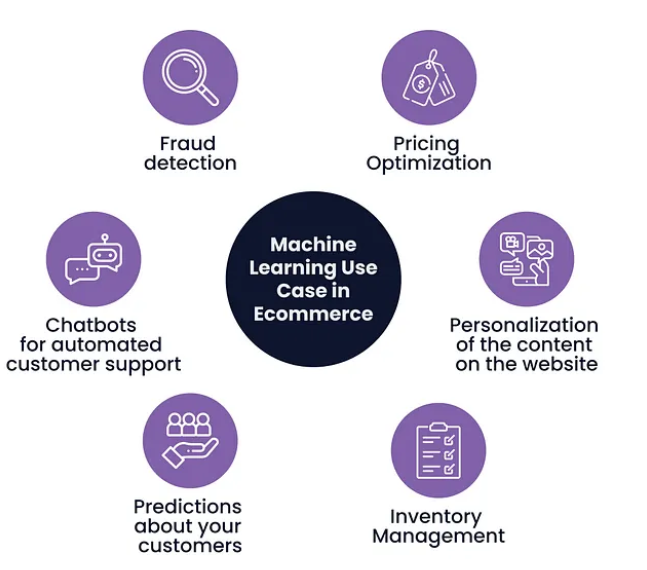Explore: Your passport to simple insights and fresh ideas.

Blog - Machine Learning in E-commerce: Boosting Sales and Customer Engagement
Machine learning (ML) is upgrading the environment of e-commerce sector, providing the unique ways to improve the customer engagement and drive sales. By perfectly analyzing the large amounts of data, algorithms of machine learning can personalize the shopping experience, predict future trends, and streamline operations. In this blog, there will investigate into how e-commerce businesses uses machine learning for customer satisfaction and growth.
1. Personalized Product Recommendations
Machine learning surpasses at understanding of the preferences and behavior of the customer. By perfectly analyzing the past purchases, search queries, and browsing history, the algorithms of machine learning can recommend the products that customer is more excited to purchase. This personalization develops the shopping more convenient for all customers and increases the likelihood of the sales for businesses. Recommendation engine of the Amazon is a prime example, reportedly responsible for the important portion of its sales.
2. Improved Search Functionality
Effective search functionality is most essential for the sites of e-commerce. Machine learning (ML) improves the search results by properly understanding the intent and context of the user. For example, if the customer regularly buys the organic products, the search engine show "shampoo" might prioritize the organic shampoos in the results. This type of customized approach not only saves time for the customers but also able to increases the likelihood of finding the product they are most excited to buy.
3. Predictive Analytics for Inventory Management
The algorithms of the machine learning can easily predict the future product demands on the basis of the historical data, seasonal fluctuations, and the current market trends. This predictive power allows e-commerce businesses to optimize their inventory, decreasing the costs combined with the stockouts or overstocking. Proper predictions also make sure that the popular items are always available, improving the customer satisfaction.
4. Dynamic Pricing
The dynamic pricing is another area where ML (machine learning) represent its strength. By analyzing the market demand, other external factors, and competitor pricing, algorithms of the machine learning can adjust the prices in real-time to increase the profits or move inventory faster. This is the best approach, especially beneficial during the high-demand periods such as sales events and holidays.
5. Fraud Detection and Prevention
Algorithms of the Machine learning are used at identifying the patterns indicative of fraudulent activities. By properly analyzing the transaction data, they can flag the unusual purchasing behavior, avoid the credit card fraud, and detect to identity theft. This is not only protects the business but also able to makes sure the safe shopping environment for customers.
6. Chatbots and Customer Service
Chatbots powered by machine learning are becoming more growing sophisticated. They can handle the large range of customer queries, deliver the product recommendations, and even help in the process of the checkout. This 24/7 customer service not only able to improves the customer engagement but also decreases the workload on human staff.
Machine learning used in the e-commerce is no longer just the competitive edge; it is a needed. Its ability to deliver the personalized experiences, predict trends, and optimize operations is invaluable in the current fast-paced market. By using the ML technologies, e-commerce businesses not only able to improve their customer engagement and sales but also position themselves for future growth in the digital economy.










